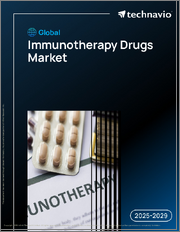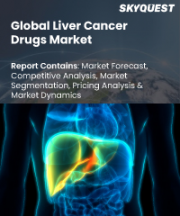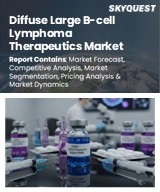
|
시장보고서
상품코드
1476610
종양용해성 바이러스 면역치료 시장 : 기회와 임상시험 동향(2030년)Global Oncolytic Virus Immunotherapy Market Opportunity & Clinical Trials Insight 2030 |
||||||
세계의 종양용해성 바이러스 면역치료 시장 규모는 2030년까지 15억 달러 이상에 달할 것으로 예측됩니다.
암은 전 세계 환자와 의료계 모두에게 도전이 되고 있는 무자비한 적입니다. 이 다면적인 질병을 퇴치하기 위한 혁신적이고 표적화된 치료법을 찾는 노력은 암 치료 분야에서 괄목할 만한 진전을 가져왔습니다. 많은 새로운 전략 중 종양 용해성 바이러스 면역 요법은 최근 암 치료의 유망한 수단으로 연구자들과 임상의들의 주목을 받고 있습니다. 종양용해성 바이러스 면역치료 영역은 바이러스의 자연적 특성을 이용하여 암세포를 선택적으로 표적화하여 파괴하는 독특한 정밀 지향적 치료 접근법을 제공합니다. 이 치료 패러다임이 과학적 발견의 영역에서 상업적 가능성으로 발전함에 따라 상업적 시장 역학을 형성하는 많은 기회와 도전이 생겨나고 있습니다.
지금까지 두경부암, 악성 흑색종, 악성 신경교종 등 다양한 유형의 암 치료제로 온콜린(H101), 임리크(Talimogene laherparepvec), 테셀파츌레프(G47-Delta, Delytact) 등 3종의 종양용해성 바이러스 면역치료가 지난 10년간 승인되었습니다. 그러나 Oncos 102, CAN-2409, Pelareorep, CG070, VG161과 같은 최신 종양용해성 바이러스 면역치료제가 FDA 및 EMA와 같은 규제 당국으로부터 패스트트랙, 희귀의약품, PRIME 등의 지정을 받음에 따라 이 분야에서는 향후 수년간 더 많은 승인을 받을 것으로 예상됩니다.
임상 분야에서 암세포 용해 바이러스는 혁신적인 연구와 치료 개발의 최전선에 있습니다. 이 바이러스는 선천적인 종양 용해 특성을 갖도록 신중하게 조작 또는 선택되어 암세포에 침투하여 암세포 내에서 복제하고 암세포의 파괴를 유도하는 동시에 면역 반응을 자극하도록 설계되었습니다. 또한 종양 용해성 바이러스 면역치료의 영역이 실험실과 임상시험의 틀을 넘어 상업적 영역으로 넘어가는 과정에서 제약사의 참여가 특징적이며, 전 세계 암 치료 상황에서 그 궤적을 형성하는 데 일조할 것으로 보입니다.
체크포인트 억제제나 CAR-T 세포 치료와 같은 다른 면역 요법의 성공은 암과 싸우기 위해 면역 체계를 활용하는 것에 큰 관심을 불러일으키고 있습니다. 종양 용해성 바이러스 면역 요법은 바이러스를 이용하여 암세포에 대한 면역 반응을 자극함으로써 이러한 접근법을 보완합니다. 이러한 면역치료의 좋은 결과는 암과 싸우기 위해 면역체계를 활용하는 것에 대한 관심을 불러일으키고, 보완적이고 시너지 효과가 있는 종양 용해성 바이러스 면역치료에 대한 연구가 활발히 진행되고 있습니다.
이에 따라 췌장암, 소화기암, 유방암 등 다양한 암 아형 환자를 치료하기 위해 delolimogene mupadenorepvec과 atezolizumab, OH2 주사제와 일리노테칸, HX008, ADV/HSV-tk와 펨브롤리주맙 등 면역관문수용체를 표적으로 하는 다양한 유형의 항체와 종양 용해성 바이러스의 조합으로 구성된 임상 파이프라인에서 여러 연구가 진행 중입니다.
암세포 용해성 바이러스 면역치료 시장은 제약 분야의 투자, 제휴 및 파트너십이 눈덩이처럼 불어나고 규제 당국의 승인이 증가함에 따라 향후 수년간 더욱 확대되고 성장할 것으로 예상됩니다. 최적화하기 위해 단순 헤르페스-1형 바이러스(HSV-1), 아데노바이러스와 같은 다양한 유형의 암 용해 바이러스와 화학요법, PD-1 및 PD-L1 수용체에 대한 단클론 항체, 치료용 펩티드 백신 및 나노입자의 병용요법이 혼잡합니다.
세계의 종양용해성 바이러스 면역치료 시장에 대해 조사했으며, 시장의 개요와 약제 동향, 임상시험 동향, 지역별 동향 및 시장에 참여하는 기업의 경쟁 구도 등을 제공하고 있습니다.
목차
제1장 종양용해성 바이러스 면역치료의 서론
- 개요
- 종양용해성 바이러스 면역치료의 필요성
제2장 세계에서 승인되고 있는 종양용해성 바이러스 면역치료
- 상업적으로 승인된 치료법
- FDA 및 EMA 지정 : 획기적 치료제, 패스트트랙, 희귀, PRIME
제3장 세계의 종양용해성 바이러스 면역치료 임상시험 개요
- 상별
- 국가별
- 기업별
- 적응증별
- 우선도별
- 환자 부문
제4장 세계의 종양용해성 바이러스 면역치료 시장의 동향과 발전
- 현재의 시장 개요
- 향후 시장 예측
제5장 세계의 종양용해성 바이러스 면역치료 시장 동향, 지역별
- 한국
- 일본
- 미국
- 유럽
- 영국
- 중국
- 호주
제6장 종양용해성 바이러스 면역치료 시장 동향(적응증별)
- 악성 흑색종
- 두경부암
- 신경교종
- 췌장암
- 난소암
- 림프종
- 폐암
- 유방암
- 전립선암
- 간세포암
제7장 종양용해성 바이러스 면역치료 임상시험(기업별, 적응증별, 상별)
- 연구
- 전임상
- 제I상
- 제I/II상
- 제II상
- 제III상
- 등록
제8장 출시 종양용해성 바이러스 면역치료 임상적 인사이트
제9장 세계의 종양용해성 바이러스 면역치료 - 가용성, 투여량, 가격 분석
- Imlygic
- Oncorine(H101)
- Delytact
제10장 첨단 종양용해성 바이러스 면역치료의 개발에 사용되는 플랫폼
제11장 종양용해성 바이러스 면역치료와 기타 치료제와의 병용
- 나노재료를 이용한 종양용해성 바이러스 면역치료
- 화학요법약을 이용한 종양용해성 바이러스 면역치료
- 펩티드를 이용한 종양용해성 바이러스 면역치료
- 표적 면역치료별 종양용해성 바이러스 면역치료
제12장 세계의 종양용해성 바이러스 면역치료 시장 역학
- 시장 촉진요인
- 시장이 해결해야 할 과제
제13장 경쟁 구도
- AdCure Bio
- Beijing SyngenTech
- BioVex Inc.(Amgen)
- Calidi Biotherapeutics
- Genelux Corporation
- Immvira Pharma
- Jennerex Biotherapeutics
- KaliVir
- Lokon Pharma
- Oncolys BioPharma
- PsiOxus Therapeutics(Akamis Bio)
- Seneca Therapeutics
- Shanghai Sunway Biotech
- Takara Bio
- TILT Biotherapeutics
- Transgene
- Virogin Biotech
Global Oncolytic Virus Immunotherapy Market Opportunity & Clinical Trials Insight 2030 Report Highlights:
- Global Oncolytic Virus Immunotherapy Therapy Market Opportunity: > USD 1.50 Billion By 2030
- Oncolytic Viruses Immunotherapies Clinical Trials By Company, Indication & Phase
- Comprehensive Insight On Oncolytic Virus Immunotherapies In Clinical Trials: > 180 Therapies
- FDA & EMA Designations: Breakthrough Therapy, Fast Track, Orphan, PRIME
- Patent Analysis Therapies in Clinical Trials
- IMLYGIC, Oncorine, Delytact: Availability, Dosage and Price Analysis
- Platforms Used For Developing Advanced Oncolytic Virus Immunotherapy
Cancer endures to be a relentless adversary, challenging both patients and the medical community across the world. The quest of innovative and targeted therapies to battle against this multifaceted disease has led to remarkable advancements in the field of cancer therapy. Amidst the many emerging strategies, oncolytic virus immunotherapy has captured the attention of researchers and clinicians as a promising avenue for cancer treatment in the recent years. The realm of oncolytic virus immunotherapy harnesses the natural characteristics of viruses to selectively target and destroy cancer cells, offering a unique and precision oriented approach to treatment. As this therapeutic paradigm progresses from the realm of scientific discovery to commercial viability, it brings forth a multitudinous of opportunities and challenges that shape the dynamics of the commercial market.
Hitherto, 3 oncolytic virus immunotherapies, namely Oncorine (H101), Imlygic (Talimogene laherparepvec), and teserpaturev (G47-Delta; Delytact), have been approved over the preceding decennium for the treatment of different types of cancer like head and neck cancer, melanoma and malignant glioma. However, it is expected that the domain will observe many more approvals in the upcoming years because of that fact that a handful of advanced oncolytic virus immunotherapies such as Oncos 102, CAN-2409, Pelareorep, CG070, VG161 have received designations like Fast Track, Orphan Drug, PRIME from regulatory agencies, FDA and EMA.
In the clinical field, oncolytic viruses are at the forefront of innovative research and therapeutic development. These viruses, carefully engineered or selected for their innate oncolytic properties, are designed to infiltrate cancer cells, replicate within them, and induce their destruction while simultaneously stimulating an immune response. Moreover, as the sphere of oncolytic virus immunotherapy surpasses the confines of laboratories and clinical trials, its journey into the commercial arena is characterized by an involvement of pharma companies that will aid to shape its trajectory in the global cancer treatment landscape.
The triumph of other immunotherapies, such as checkpoint inhibitors and CAR-T cell therapies, has generated considerable interest in harnessing the immune system to fight cancer. Oncolytic virus immunotherapy complements these approaches by utilizing viruses to stimulate an immune response against cancer cells. The positive outcomes from these immunotherapies have fueled interest in leveraging the immune system to combat cancer, leading to increased exploration of oncolytic virus immunotherapy as a complementary and synergistic approach.
On that account, multiple studies are ongoing in the clinical pipeline which comprise the combinations of oncolytic viruses with different types of antibodies targeting immune checkpoint receptors such as delolimogene mupadenorepvec with atezolizumab, OH2 injection, with or without irinotecan or HX008, ADV/HSV-tk with Pembrolizumab, for the treatment of patients suffering from wide array of cancer subtypes such as pancreatic cancer, Gastrointestinal Cancer, breast cancer etc.
Competition from the involvement of multitudinous pharmaceutical companies such as Merck, Bristol-Myers Squibb, Astellas Pharma, Roche, Lokon Pharma, NRG oncology, CG oncology, Genemedicine, Binhui Biopharmaceutical Barinthus Biotherapeutics, TILT Biotherapeutics, Genelux Corporation, Replimune, and Candel Therapeutics have created wave in the commercial market of oncolytic virus immunotherapy. As a result, the clinical development landscape will observed several pharmaceuticals companies commencing research in order to understand the oncolytic virus mode of actions which will aid to develop advanced and innovative oncolytic virus immunotherapy with least possible side effects.
It is projected that the market of oncolytic virus immunotherapy is poised to expand and multiply further in the forthcoming years due to the augmenting government regulatory approvals in conjugation with snow balling investments, collaborations and partnerships in the pharmaceutical sector. As of May 2024, the oncolytic virus is crowded by usage of different types of oncolytic virus like herpes simplex type-1 virus (HSV-1) or adenoviruses with or without chemotherapy, monoclonal antibodies directing against PD-1 and PD-L1 receptors, therapeutic peptide vaccines or nanoparticles in order to optimize delivery and performance for cancer treatments.
Currently, the US remains the market leader of the market as evident from rising collaborations, advancement and government bestow. The synergy between these clinical and commercial aspects propels the field forward, offering new expectation to cancer patients and shaping the future of cancer treatment. Continuous research, innovation, and collaboration are essential to sustaining this growth and realizing the full potential of oncolytic virus immunotherapy. As research further delves deeper into understanding the complexities of this innovative approach, there is optimism that oncolytic viruses will emerge as a valuable addition for cancer treatments, offering new avenues for improved outcomes and enhanced quality of life for patients.
Table of Contents
1. Introduction to Oncolytic Virus Therapy
- 1.1 Overview
- 1.2 Need of Oncolytic Virus Immunotherapy
2. Globally Approved Oncolytic Virus Immunotherapies
- 2.1 Commercially Approved Therapies
- 2.2 FDA & EMA Designations: Breakthrough Therapy, Fast Track, Orphan, PRIME
3. Global Oncolytic Virus Immunotherapies Clinical Trials Overview
- 3.1 By Phase
- 3.2 By Country
- 3.3 By Company
- 3.4 By Indication
- 3.5 By Priority Status
- 3.6 Patient Segment
4. Global Oncolytic Virus Immunotherapy Market Trend & Developments
- 4.1 Current Market Outline
- 4.2 Future Market Forecast
5. Global Oncolytic Virus Immunotherapy Market Trends By Region
- 5.1 South Korea
- 5.2 Japan
- 5.3 US
- 5.4 Europe
- 5.5 UK
- 5.6 China
- 5.7 Australia
6. Global Oncolytic Virus Immunotherapy Market Trends By Indications
- 6.1 Melanoma
- 6.2 Head & Neck Cancer
- 6.3 Glioma
- 6.4 Pancreatic Cancer
- 6.5 Ovarian Cancer
- 6.6 Lymphoma
- 6.7 Lung Cancer
- 6.8 Breast Cancer
- 6.9 Prostate Cancer
- 6.10 Hepatocellular carcinoma
7. Global Oncolytic Viruses Immunotherapies Clinical Trials By Company, Indication & Phase
- 7.1 Research
- 7.2 Preclinical
- 7.3 Phase-I
- 7.4 Phase-I/II
- 7.5 Phase-II
- 7.6 Phase-III
- 7.7 Registered
8. Marketed Oncolytic Viruses Immunotherapies Clinical Insight
9. Global Oncolytic Virus Immunotherapy - Availability, Dosage & Price Analysis
- 9.1 Imlygic
- 9.1.1 Overview & Patent Insights
- 9.1.2 Pricing & Dosage
- 9.2 Oncorine (H101)
- 9.2.1 Overview
- 9.2.2 Pricing & Dosage
- 9.3 Delytact
- 9.3.1 Overview
- 9.3.2 Pricing & Dosage
10. Platforms used for Developing Advanced Oncolytic Virus Immunotherapy
- 10.1 KaliVir VET Backbone Technology
- 10.2 Calidi's Platform Technology
- 10.3 RenovoRx TAMP Platform
- 10.4 ValoTx PeptiCRAd
- 10.5 ValoTx PeptiVAX / PeptiENV / PeptiBAC
- 10.6 Transgene's Invir.IO Platform
- 10.7 Transgene's myvac Platform
- 10.8 Imugene's CF33 Technology
- 10.9 EpicentRx AdAPT Platform
- 10.10 Genelux's Choice Discovery Platform
11. Oncolytic Virus Immunotherapy Combinations with Other Therapeutic Agents
- 11.1 Oncolytic Virus Immunotherapy with Nano materials
- 11.2 Oncolytic Virus Immunotherapy with Chemotherapeutic Drugs
- 11.3 Oncolytic Virus Immunotherapy with Peptides
- 11.4 Oncolytic Virus Immunotherapy with Targeted Immunotherapies
12. Global Oncolytic Virus Immunotherapy Market Dynamics
- 12.1 Market Drivers
- 12.2 Market Challenges
13. Competitive Landscape
- 13.1 AdCure Bio
- 13.2 Beijing SyngenTech
- 13.3 BioVex Inc. (Amgen)
- 13.4 Calidi Biotherapeutics
- 13.5 Genelux Corporation
- 13.6 Immvira Pharma
- 13.7 Jennerex Biotherapeutics
- 13.8 KaliVir
- 13.9 Lokon Pharma
- 13.10 Oncolys BioPharma
- 13.11 PsiOxus Therapeutics (Akamis Bio)
- 13.12 Seneca Therapeutics
- 13.13 Shanghai Sunway Biotech
- 13.14 Takara Bio
- 13.15 TILT Biotherapeutics
- 13.16 Transgene
- 13.17 Virogin Biotech



















